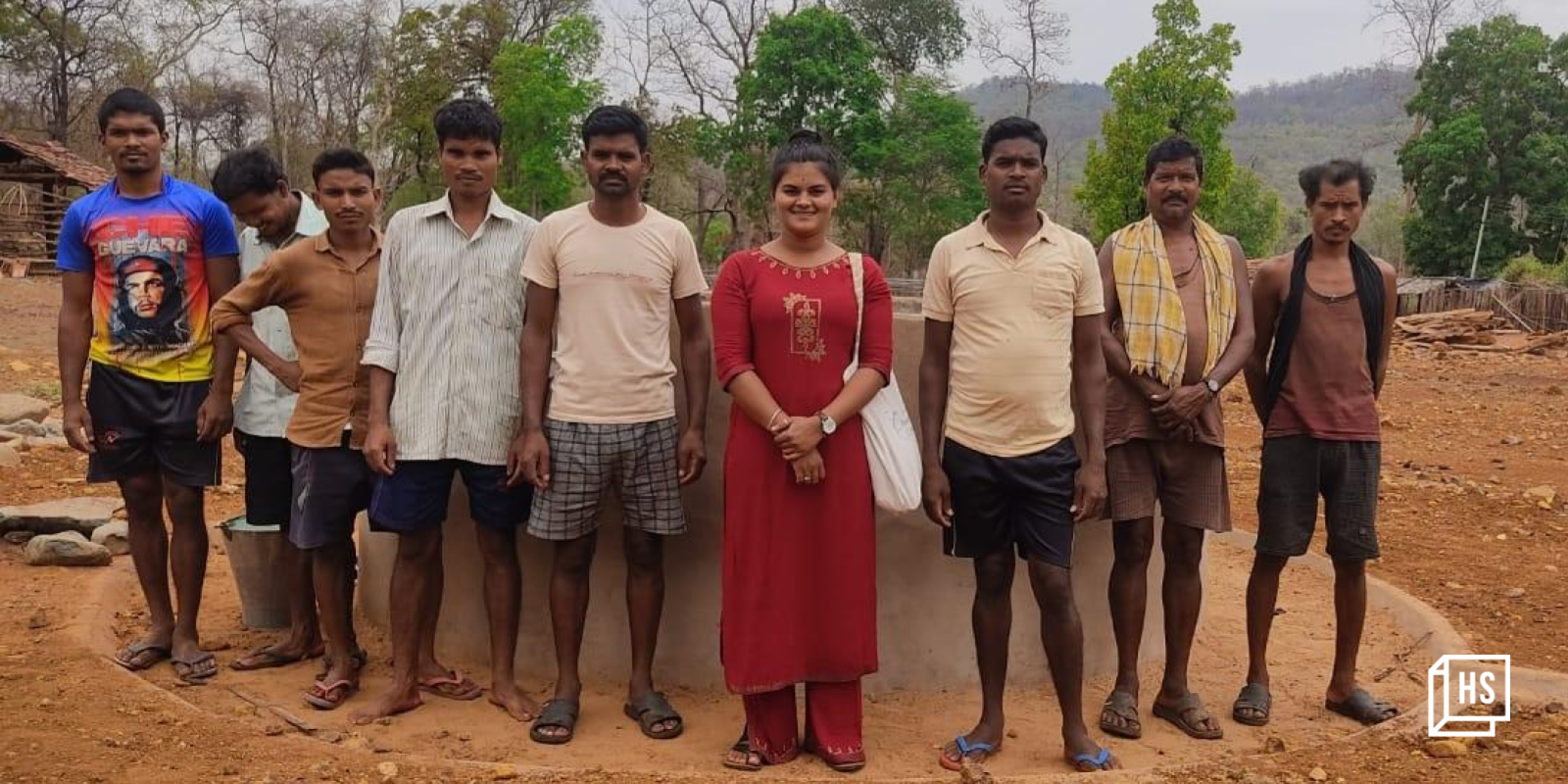Changing the tide: This young sarpanch is improving tribal lives one village at a time
In the Naxal-affected tribal district of Gadichiroli, Maharashtra, 24-year-old Bhagyashree Manohar Lekhami is the first sarpanch in 16 years. She is preventing child marriages, educating girls, and solving local issues.
In Bhamragarh tehsil of Maharashtra’s Gadchiroli district, village kangaroo courts commonly ordain child marriages, doctors rarely show up at public health centres, and tribal men languish in jail for years after being implicated as Naxals.
But every day, Koti village sarpanch Bhagyashree Manohar Lekhami takes her morning tea and sets out on her motorcycle with a fresh plan to challenge the status quo. She picks a village in her jurisdiction and heads over to share her meals and ideas with residents. Her goal? To dissuade parents from getting their daughters married and resume their education, while checking the status of their electric meters for power supply and drawing blueprints for toilets and concrete homes.
“When we are done, we take a nice long walk into the forest and share jokes,” Lekhami tells HerStory.
The Koti gram panchayat, where Lekhami lives, hadn’t had a sarpanch since 2003 as not many were keen to be posted in the Naxal-dominated region. Her mother, an Anganwadi teacher, and father, a tehsil-level teacher, frequently hosted villagers who needed help with applying for official documents, filling out registration forms, and opening bank accounts.
In 2019, as one of the few girls in the panchayat to have finished school, Lekhami was unanimously elected as an independent candidate by the Madiya tribal community (which dominates the population in the region). She was 20 years old and a volleyball champion.
“I wanted to become an athlete,” says Lekhami. “But until I turned 20, I hadn’t seen a light bulb in our house. As adivasis, we weren’t any government’s priority. I saw this as an opportunity to change that..”
Woman, adivasi, leader—A daily challenge

Bhagyashree makes it a point to meet villagers every day to learn about the issues affecting their lives and draw up solutions.
Months into her appointment as sarpanch, Lekhami recalls going back home in tears every day.
“As a child, I played outdoors all day and wore what I wanted. I was brought up like a son by my parents,” she recalls. “But for the first time, in official spaces particularly, I was being touched inappropriately, mocked and shut down while trying to speak, and stared at all the time. I would come home and cry to my mother.”
“She told me I would have to become a different Bhagyashree from who I was at home. I would have to speak louder and with conviction, and trust my decisions,” she adds.
The young leader, who is doing her BA in Physical Education from the Rashtriya Sharirik Shikshan Mahavidyalay in Chandrapur, says though she still faces these situations from time to time, she has learned how to handle them and get work done.
“There are times the villagers themselves have disagreements with me and my vision. They don’t want to let their daughters finish school or spend money for their college,” she relays.
To stop girls from getting married before they turn majors, Lekhami has started enrolling them into a residential school in Chandrapur, which is a good distance from their village. “I have ensured they come home only for holidays and also get into sports,” she says.
The sarpanch helps students in need of financial assistance for higher studies, and when she finds time, also educates women and girls about menstrual health and hygiene.
“At the policy and implementation level, I see that accessing basic resources such as healthcare and education in itself is a big task for a tribal community. In those spaces, I have understood that the delay in approvals and processes is going to be a part of my work. I have grown the resilience to not stop midway,” says Lekhami.
After applying for electricity meters, villages waited six months to get the power supply. Today, six out of nine villages that come under her jurisdiction have electricity. More than 150 kuccha houses have been rebuilt as brick-and-mortar homes and have toilets with water supply.
The long, systemic battle
While Lekhami understands that reversing social conditioning and stigma on women is lifelong work, systemic challenges continue to slow her down. The public health centres in their panchayat are neglected by doctors and malaria cases among children shoot up after the monsoon every year.
“Doctors demand adequate facilities such as roads, power supply and infrastructure to visit patients in our villages. But those facilities are subject to extreme bureaucratic delays and disregard for our community,” she says. “This is the same problem faced by schools. My father is the only teacher available on most days. No one wants to work here; many put the blame on Naxalism,” she says.
“Now, more than ever, I am glad I stood for my people. I have learned that it is us who can change things for ourselves and I won’t stop until that happens,” Lekhami asserts.
Edited by Kanishk Singh





